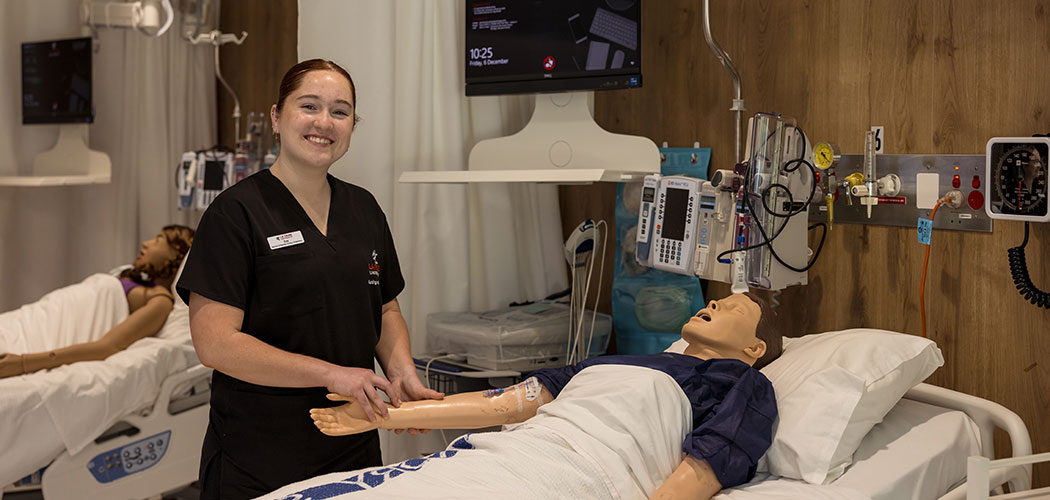From today, nursing and midwifery students across Australia can apply for the $331.65 per week Commonwealth Prac Payment (CPP) to manage the significant financial costs of undertaking their mandatory clinical placements.
The Australian Nursing and Midwifery Federation (ANMF) was instrumental in advocating for the CPP to help alleviate widespread ‘placement poverty’ experienced by students due to a range of out-of-pocket costs associated with placements including travel and tolls, accommodation, parking and uniforms.
While the CPP marks a ‘positive first step’, ANMF Federal Secretary Annie Butler argued eligibility criteria should be broadened to ensure all students who need help can access the payment.
“In a cost-of-living crisis, placement poverty has been a significant issue for students who lose their income from regular paid jobs while they’re undertaking their training and then have to pay for a whole range of everyday costs,” Ms Butler explained.
“This financial burden has resulted in growing numbers of students failing to complete their qualifications and walking away from the profession.
“While we welcome the start of the CPP scheme, we know we need to do more to support nursing and midwifery students through their studies to ensure they have ongoing access to quality education programs, quality clinical placements and training, and sufficient financial assistance to address the increasing challenges they face.”
The new payment, benchmarked to the single Austudy rate per week, will provide cost-of-living relief for around 68,000 eligible higher education students and more than 5,000 VET students each year studying nursing, teaching, midwifery, or social work.
Speaking to the ANMJ, La Trobe University nursing student Eve McKenzie-McHarg said the Prac Payment would help ease the significant financial strain felt during compulsory placements.
“During a recent placement, I was working full 8–9-hour shifts at the hospital while still trying to pick up casual shifts at my job on weekends just to afford transport and meals,” she revealed.
“Alternately, if I was too tired to work or needed time to study on the weekends, I often had to dip into my savings, which I had worked hard to build up during the term. While I knew I needed to focus on my training, it was a constant worry to use the savings I had set aside for emergencies or future expenses. It was exhausting and affected both my wellbeing and my ability to focus on learning.”
Eve believes the financial support will help her and fellow students focus on placements with less of the “added financial pressure”
Describing placement poverty as “a real thing”, Education Minister Jason Clare said the Prac Payment would give young people who have signed up to do some of the most important jobs in the country extra help to get the qualifications they need.
“I have met students who told me they can afford to go to uni, but they can’t afford to do the prac. Some students say prac means they have to give up their part-time job, and that they don’t have the money to pay the bills.”
“These are people who are going to teach our kids, who are going to look after us when we’re sick or when we’re old, going to help women during childbirth and help support women in domestic violence refuges.”
For more information, read the ANMF’s Commonwealth Prac Payment FAQs here









2 Responses
Congratulations for this achievement. I was a hospital trained nurse at RAH in 1987 and gratefully embraced this opportunity. When I completed my training, I received a small certificate and there was no BSN/RN written after my name in my official signature. But I was still paid and recognised as an RN. Eventually, I completed an external studies to be a qualified RN.
Living a decent life today is truly expensive. This CPP will truly be helpful for our future carers, managers, counsellors, therapists, to name a few of the roles that a RN has to accomplished during a single shift. Bravo!!
This is a small step in embracing a valuable resource which could help to address the nursing shortages so many health care providers are struggling with.
I am one of the last hospital trained registered nurses (graduated 1979) and all trainees from 1st to 3rd year were a valuable part of the clinical team.
By the time we graduated we had the confidence and skill to manage a patient load, perform tasks and respond to deterioration while meeting the needs of the patient and the clinical area.
The pay wasn’t extraordinary (still isn’t) but we could study and work without too many financial concerns due to support provided by the system including free optimal health care (infirmary within the training hospital), low price accommodation in the nurses’ home (on campus so not too much sick leave), affordable meals in the staff cafeteria, laundering of uniforms free of charge.
We became a community and work family.
I think it needs to be considered that “employing” 3rd year students with time off for attending classes will not only support staff shortages but will provide opportunities to develop confident and competent skills for the up and coming new generation of skilled nurse clinicians.